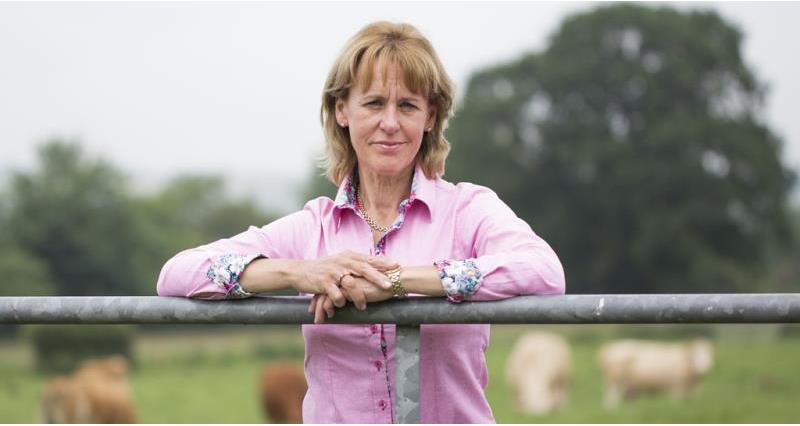Tuesday 7 August marks the notional day in the calendar where the British larder would run bare if we fed the nation only British food from 1 January. Defra figures for 2017 show that Britain produced 60% of its own food and this rate is in long-term decline.
NFU President Minette Batters says food self-sufficiency statistics have always been an important measure of the nation’s ability to feed itself, but with Brexit just eight months away she says it shines a new light on the supply of British food.
Mrs Batters continued: “British food production has been pulled into sharp focus in recent weeks with farmers across the country wrangling with the impacts of unprecedented dry and hot weather.
See also: Our Back British Farming campaign
“This has been a real test for Government to show the farmers and the many concerned members of the public that they think that our ability to produce food in this country is truly important.
“We strongly believe that every British citizen should be entitled to a safe, traceable and high quality supply of British food that is produced to some of the highest animal welfare and environmental standards in the world. Home-grown food production must have the unwavering support of Government if we are to achieve this post-Brexit.
“The statistics show a concerning long-term decline in the UK’s self-sufficiency in food and there is a lot of potential for this to be reversed. And while we recognise the need for importing food which can only be produced in different climates, if we maximise on the food that we can produce well in the UK then that will deliver a whole host of economic, social and environmental benefits to the country.
“The UK farming sector has the potential to be one of the most impacted sectors from a bad Brexit – a free and frictionless free trade deal with the EU and access to a reliable and competent workforce for farm businesses is critical to the future of the sector. And as we replace the EU’s Common Agricultural Policy, we must keep a sharp focus on what productive, progressive and profitable farm businesses need from a domestic agricultural policy.”
Farmed environment statistics:
- Farmland covers 70% of the nation
- Under agri-environment schemes in England, more than 30,000 kilometres of hedgerows have been planted or restored.
- There are around 270,000 hectares managed voluntarily under the Campaign for the Farmed Environment.
- Total Greenhouse gas emissions from agriculture have fallen by 17% since 1990.
Farmed food statistics:
- British farms produce 61% of the nation’s food.
- British food is produced to some of the highest standards in the world, underpinned by assurance schemes like the Red Tractor which independently audit the supply chain from farm to fork.
Farming’s contribution to the economy:
- Food and farming provides 3.8 million jobs.
- Farming is the bedrock of the largest manufacturing sector, food and drink, which contributes £111 billion to the country’s economy.
